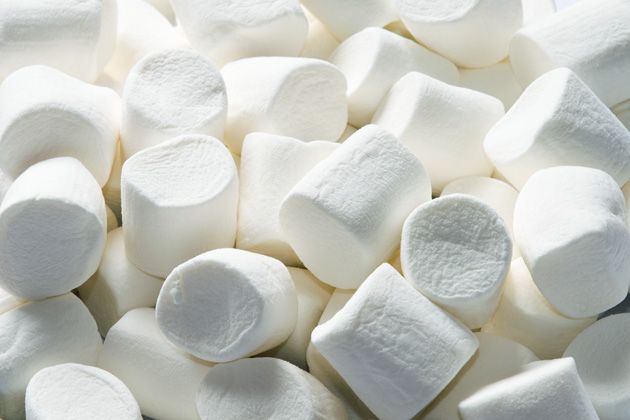Who said Mental Toughness is Over-rated?
Can you depend on your mental toughness skills to stick to a diet?
“What the hell! Carpe diem! Let the binge play out.” Somewhere between the second and third week, Shirley’s grand schemes to adhere to her diet, ends with the above three sentences.
The same scenario plays out all the time. Shirley turbo-charges her willpower and grinds through the first and sometimes second week, abiding strictly to her diet. Then, in the third week, she accepts her friends’ invitation to a cup of coffee.

Do Not Eat That Cookie! – Self-control
They chat away leisurely over steaming coffee. The conversation is warm and lively. The air is perfumed by the unique flair of brewed coffee and the aroma of cookies, muffins and an assortment of treats.
Shirley is expending a tremendous amount of willpower to resist her cravings to grab a bite. She has spent the past 2weeks defeating similar temptations to break her diet. But today, when one of her peers, extends the appetizing cookie saucer to Shirley …
And says, “Don’t be so hard on yourself! Just one bite won’t kill you.”
“Ok! Just one.” Shirley replies, falling for the temptation. The cookie dissolves in your mouth with “hmms and ayyhs” of liberating delight. Her mind is jubilating in bliss. In the same moment of guilty pleasure, it occurs to Shirley that, she has just broken her diet again.
The “what the hell effect” kicks in.

Knowing is Not Enough. You Must Apply the Knowledge!
Shirley thinks to herself, since I’ve already broken my diet, why don’t I just make the best of it.
Carpe diem! The binge is unbridled. The tight, disciplined diet schedule she’d maintained for 2weeks flies out the window of indulgence.
Her ravenous fingers move from the cookie saucer to the muffin basket, back and forth. By the time the coffee break is over, Shirley’s avaricious stomach is beaming with satisfaction.
But her tortured mind is filled with regret. She is awe-struck with total disbelief, that she did it again. She broke the diet; she’d vowed to keep.

Why Did I Binge? – Mental Toughness
A Willpower Lesson from 4year Olds – Mental Toughness
Back in the 1960s, the Stanford university professor Walter Mischel conducted a series of self-control experiments, now known as the marshmallow tests.
In modern psychological studies on self-control, no other experiments are more frequently cited than the marshmallow tests.
In the experiments, Walter Mischel offered each kid a deal before leaving the kid alone with the marshmallow. One by one, Walter sat a kid in the test room and placed a marshmallow in front of him/her. Walter would explain to each kid that, s/he could eat the marshmallow right away or s/he could wait for 15minutes. If the kid successfully waits for 15minutes till he returns, Walter would reward the kid with a second marshmallow.
Some of the kids chose not to wait and ate the marshmallow right away.

Marshmallows – Mental Toughness
A few kids succeeded to wait through the entire 15 minutes. These are the 4year olds; from whom, we can all learn. They can certainly teach Shirley a compelling willpower lesson on resisting cookies.
Professor Mischel’s experiments didn’t end in the laboratory. He spent the next 3 decades surveying and collecting detailed scientific data on these kids. It turned out that the kids, who were able to resist the marshmallows, were more successful in life. They scored higher on SAT exams, attained higher levels of education, earned higher median incomes, maintained a healthy weight, had higher equity and succeeded in maintaining longer relationships.
The shocking implications of these 1990s findings are profound.
Experiences in childhood have a major impact on your later outcomes in adulthood.
Sigmund Freud’s psychoanalysis had reached the same conclusion. However, by the mid 1960s, nothing was more popular in psychology than discrediting Freud. It turns out that, the Austrian psychologist had that one right, after all.
Your self-control during childhood is a reliable indicator of your current results.
Can you acquire you acquire the self-control skills to stick to a diet?
Good news! Yes, self-control is a totally learnable skill.
Distraction is the Philosopher’s Stone of Willpower – Mental Toughness
Re-watch the video and pay close attention to the 4year old kids, who succeeded to wait through the entire 15minutes.
There is a simple factor, common to all the kids who succeeded. Some of the kids were kicking about aimlessly, others twirling their hair, twinkling with their eyes or making strange noises.
Each kid was DISTRACTING himself/herself in his/her own way.
Your willpower is for self-control, even Shirley knows that. But you do not control yourself by steely determination or colossal resolve. The trick is to use your willpower to distract yourself.

Self-distraction -Mental Toughness
If you are going to succeed to follow through on your diet, the art of self-distraction must become an indispensable part of your mental toughness toolkit.